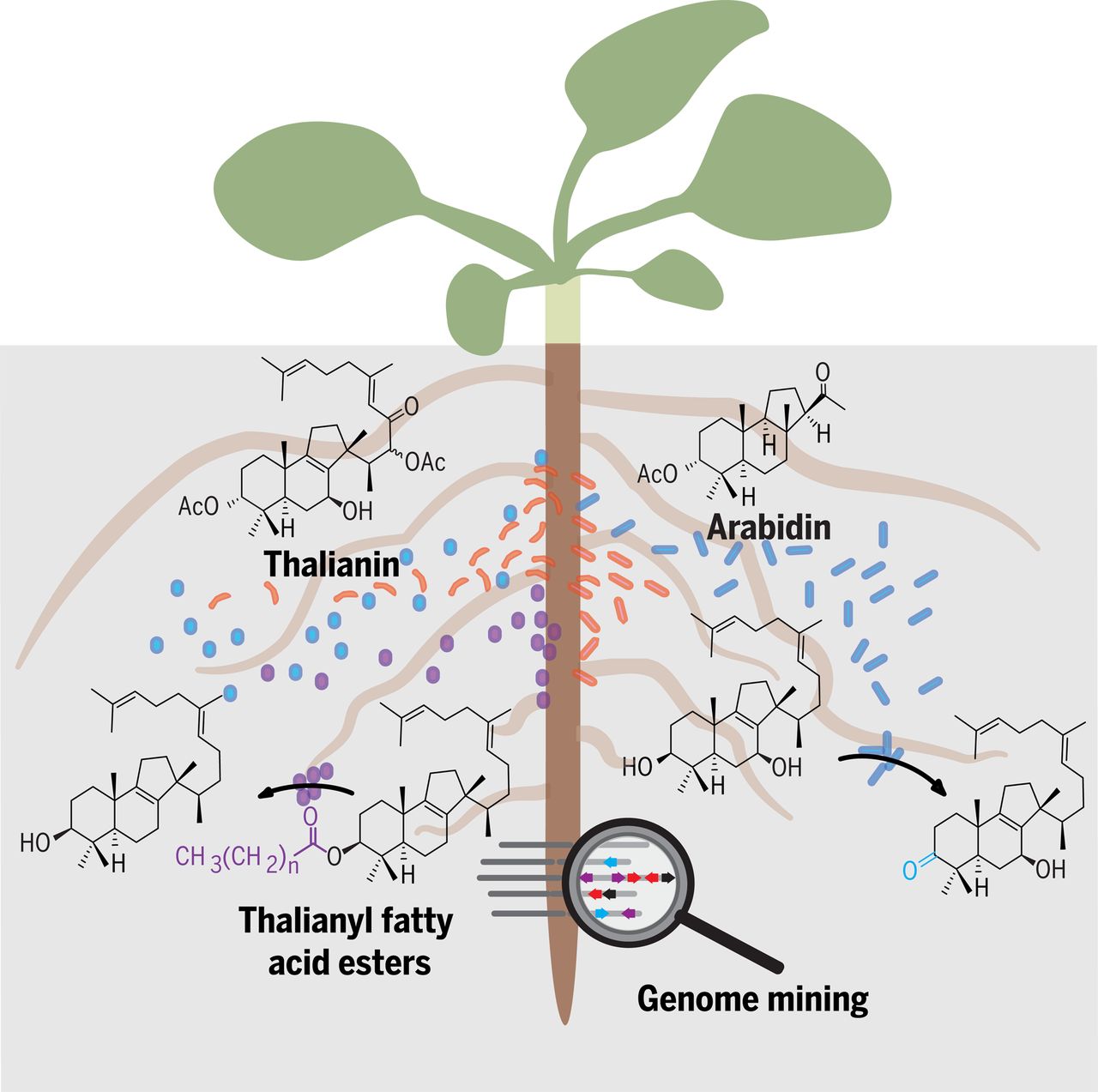OpenPlant scientists Hans-Wilhelm Nützmann and Anne Osbourn demonstrate that model plant Arabidopsis thaliana produces a range of specialized triterpenes that direct the assembly and maintenance of a specific microbial community within and around its roots. Their work, which was part of a collaborative effort, was recently published in Science:
Ancheng C. Huang, Ting Jiang, Yong-Xin Liu, Yue-Chen Bai, James Reed, Baoyuan Qu, Alain Goossens, Hans-Wilhelm Nützmann, Yang Bai, Anne Osbourn
A specialized metabolic network selectively modulates Arabidopsis root microbiota
Science (2019) Vol. 364, Issue 6440, eaau6389
DOI: 10.1126/science.aau6389
https://science.sciencemag.org/content/364/6440/eaau6389
Abstract
Plant specialized metabolites have ecological functions, yet the presence of numerous uncharacterized biosynthetic genes in plant genomes suggests that many molecules remain unknown. We discovered a triterpene biosynthetic network in the roots of the small mustard plant Arabidopsis thaliana. Collectively, we have elucidated and reconstituted three divergent pathways for the biosynthesis of root triterpenes, namely thalianin (seven steps), thalianyl medium-chain fatty acid esters (three steps), and arabidin (five steps). A. thaliana mutants disrupted in the biosynthesis of these compounds have altered root microbiota. In vitro bioassays with purified compounds reveal selective growth modulation activities of pathway metabolites toward root microbiota members and their biochemical transformation and utilization by bacteria, supporting a role for this biosynthetic network in shaping an Arabidopsis-specific root microbial community.


